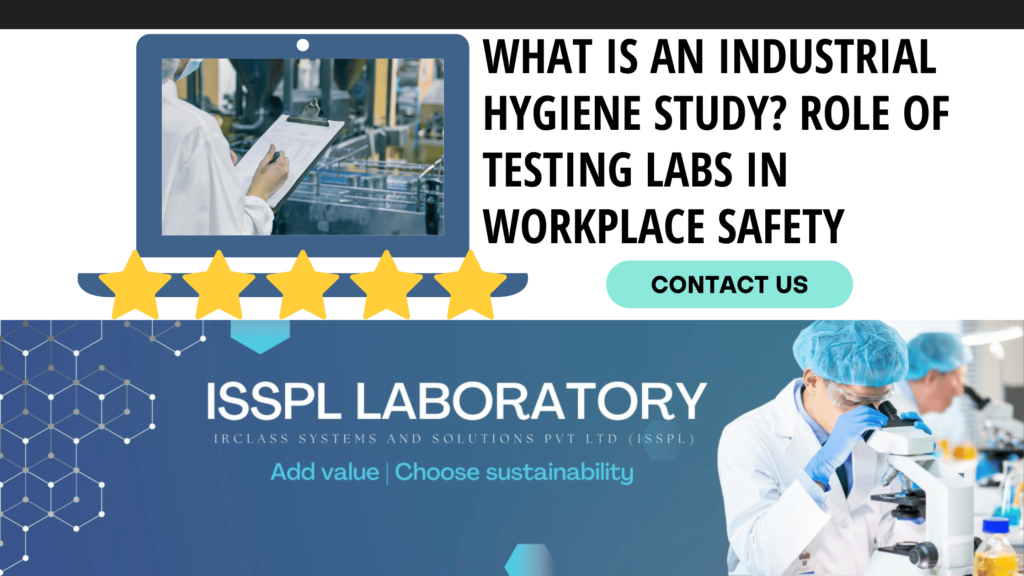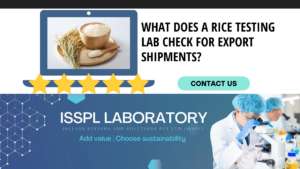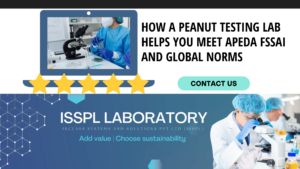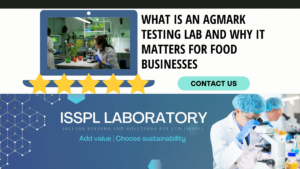An Overview by Team ISSPL - Analytical Testing Laboratory in India
ToggleWorkplaces are not always safe by default. Risks can exist in the air people breathe along with the materials they handle and the noise levels they experience every day. These risks are not always easy to see. That is where an industrial hygiene study becomes important.
Understanding Industrial Hygiene
An industrial hygiene study is a planned process to check how safe a workplace really is. It looks at the exposure levels of workers to harmful elements. This could include chemicals in the air along with dust, gases, vapors and even physical stress like noise or heat.
The goal is simple. Find the risks before they affect people.
Every business wants to keep its workers healthy and the operations running. However, many hazards cannot be detected by sight or smell. That is why testing and monitoring must happen with the right tools and the right people.
What Does an Industrial Hygiene Study Include?
The study usually begins with a walk-through of the workplace. Experts look at each task that workers perform. They track the tools being used along with the materials and the conditions around.
From there, a plan is made to measure specific hazards. These may include:
- Airborne dust can affect the lungs
- Chemical vapours that can harm over time
- Gases that can cause sudden or slow health issues
- Noise levels that may damage hearing
- Temperature or humidity that may lead to stress or illness
Samples are taken using calibrated tools. These are collected over hours or sometimes across several shifts. The aim is to capture the true exposure that workers face.
Why This Study Matters
Health problems at work do not always show up right away. Many illnesses grow slowly. Breathing in chemicals or dust every day can lead to long-term issues. These include asthma, lung disease or even cancer.
Sometimes it is not the chemical itself but the amount and length of exposure that creates danger. That is why one-time checks are not enough. Repeated studies and regular monitoring are needed.
An industrial hygiene study not only helps identify the current risks. It also helps prevent future harm.
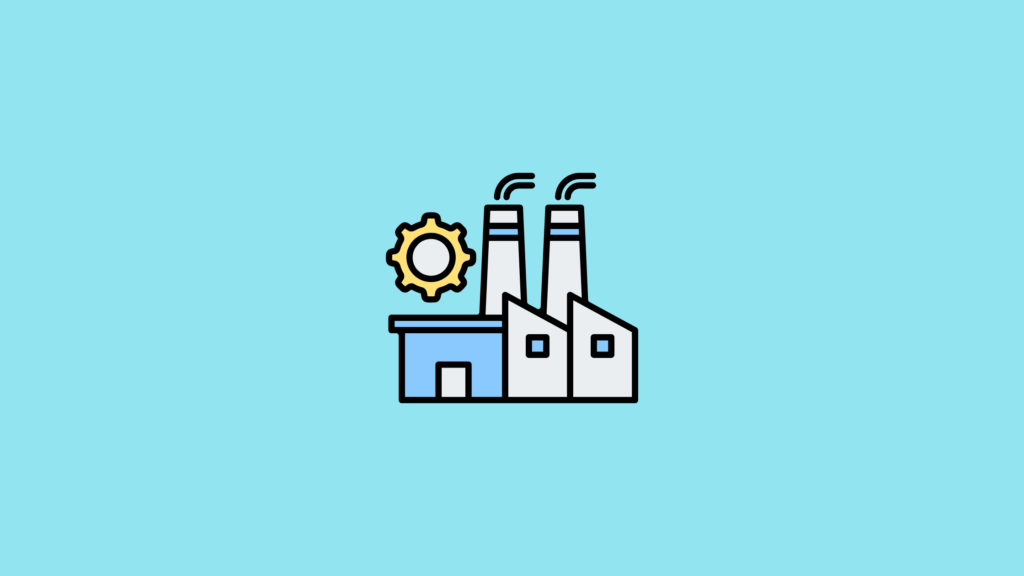
Testing Labs and Their Role
Collecting data is not enough. The samples need to be tested in labs that follow strict procedures. These labs check the presence and level of harmful substances. They use approved methods and meet quality standards.
A good lab does not just give numbers. It gives answers that can guide decisions.
For example, a lab may find that dust levels are too high in a grinding area. This result is not just a number. It tells the business that control measures need to be improved. That could mean better ventilation or changes in work practices.
Labs also help confirm if protective gear is working. Air samples inside masks can be checked. Noise levels can be mapped to see if ear protection is enough. Water used in the process can be tested to avoid skin issues.
Without labs, there is no reliable way to track real exposure.
How Testing Labs Support Workplace Safety
Labs work as support partners in safety. They bring scientific methods to real-world problems. Their job is to give accurate and timely reports that help managers act.
This work is not limited to factories or chemical plants. Many sectors use these services. This includes construction along with mining, oil and gas, power plants and even healthcare. Any place where exposure to harmful elements exists can benefit.
Good labs help answer questions like:
- Is the air safe to breathe?
- Are the chemicals within legal limits?
- Is noise going to affect the workers’ hearing?
- Are temperature conditions safe during long shifts?
Once a risk is found, businesses can act fast. They can install filters, change work hours, use different materials or offer better protection gear.
Without lab data, these steps become guesswork.
The Process Behind Reliable Results
For a study to be useful, the entire chain must be strong. That includes how samples are taken, how they are handled, how they are tested and how results are reported.
Labs need proper equipment and trained staff. They must follow national and global standards. They also need internal checks to avoid errors.
When a lab is accredited, it shows that it meets these standards. That gives confidence to the people using the reports.
A good laboratory is also clear. The reports should be easy to read. They have to state what was tested, how and what the results imply. This assists the safety team to be quicker.
How Businesses Benefit from These Studies
These studies are also useful in legal compliance other than in the protection of people. Numerous legislations require periodic testing and evidence that conditions are safe. A workplace that does not comply with these rules can be penalised or closed.
The presence of lab reports as evidence assists businesses to remain in compliance. It also demonstrates that the company appreciates its employees. This creates trust and boosts morale.
When risks are known, costs also come down. There are fewer accidents. Less money is spent on medical leave or legal cases. Insurance costs may also go down.
Even investors care about worker safety. A clean record makes a business more stable and trustworthy.
What Makes a Good Testing Partner
Not all labs work the same. A good lab is one that is consistent. It gives correct results without delay. It understands what the client needs. It keeps data safe and shares it in simple terms.
The right lab becomes more than a service provider. It becomes part of the safety process.
Clients should look for labs that are accredited. They should also look at the range of tests offered and the sectors they serve. A wide network helps when the company has sites in many places.
The team behind the lab also matters. Trained staff with real experience are key. A lab is only as good as the people running it.
The Bigger Picture of Worker Safety
Every person at work has the right to a safe space. Safety is not a one-time fix. It is a process that grows with time.
Industrial hygiene studies form a part of that process. They help bring hidden risks into the light. Testing labs turn samples into answers. Those answers become action plans.
Over time, this creates a culture where safety is not forced. It becomes part of how work is done every day.
The Role of ISSPL
The ISSP Laboratory is important in this regard. ISSPL being a reputable analytical testing service provider in India assists in making sure that the risks in the workplace are well measured and taken care of. They have their head office in Jaipur and are well distributed throughout the country, serving such industries as food, agriculture, pharmaceuticals, environment and water testing. They have a team that is experienced and precise in all projects. To know more, refer to isspllab.com.
FAQs
What is the purpose of an industrial hygiene study?
The goal is to find out if workers are exposed to harmful elements like chemicals, dust, gases or noise. It helps detect risks that cannot be seen or smelled. This study makes sure the workplace is safe before health issues begin.
Who needs an industrial hygiene study?
Any business where workers are exposed to air, noise or chemical risks can use it. This includes factories along with construction sites and labs. Even small units with regular handling of solvents or heat benefit from these studies.
How are samples collected during the study?
Experts visit the site and track tasks across shifts. They use tools to collect air, noise and surface samples. These are stored safely and sent to labs for analysis. The aim is to match real working conditions as closely as possible.
How often should a workplace do this study?
This depends on the type of work and materials used. Places with high exposure may need frequent checks. Most businesses do this once a year or after big changes in their process or layout.
What happens after the test results come in?
The reports indicate whether there are risks and what should be done. On this basis, modifications can be implemented to enhance the quality of air, decrease noise or safeguard employees. Such reports are also useful in fulfilling safety regulations and evading fines.
